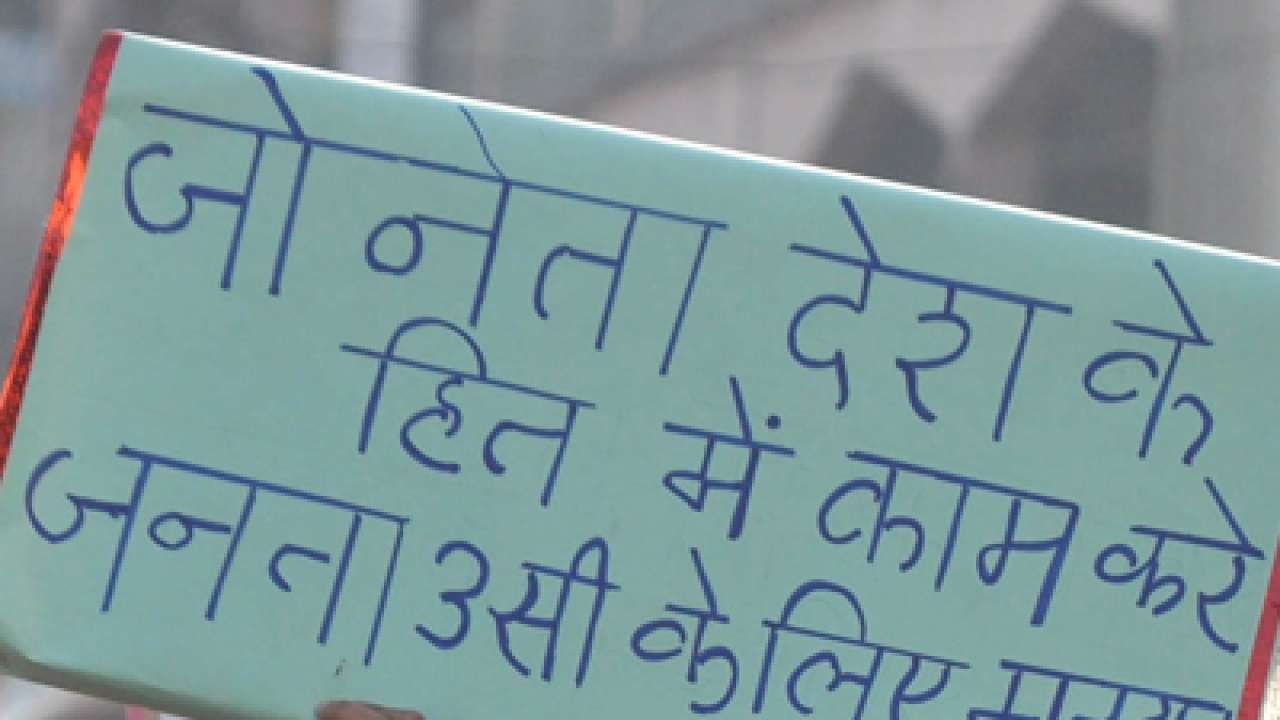
The first humans arrived at our lush subcontinent after braving the harsh rigors of the north west passage, settling down with thankful prayers to a life of relative ease, the land allowing us to hone a complacent and indolent attitude that has been hard to shake off ever since. Indeed if Indian politics thereafter ever needed to be described in one word, the word I would choose is lazy.
Most of our political realizations are quick fix measures to counter problems that would require much more detailed study or effort to really understand and prevent. Whether it be our borrowed constitution forced to fit somehow into an entirely different amalgamation of social and cultural realities, in hopes of waving away with an occidental magic wand our centuries old biases and inequalities, andleft practically intact ever since (for who can improve upon the efforts of our forefathers?) or current day manifestos of political parties, the entire system stinks of poor research, a complete unconcern for long term consequences and a refusal to change with the times.
Look at the solutions proffered for the social ills that plague us today for instance. Women feel unsafe in the public space? No issue, remove them from the public space or police them rigorously. Sexuality is moving beyond traditionally defined mores? Ban it outright or problematize it excessively. Racial discrimination and religious contentions are rearing their ugly heads? Engage in polemical debate and use it to garner votes.
The consequences of these reactionary political measures percolate much beyond the legal sphere and seep into the social consciousness of people, with the result that our country seems to be travelling backward rather than forward in terms of general social progress. It has made marriage a safety catch for women, even though there is nothing protecting them from marital rape or other forms of subjugation within the most ancient form of patriarchal control. Hence all women’s security advertisements (issues in public interest) beseech men to protect their sisters, wives, daughters and mothers, indicating that a woman can only be protected with familial ties, she is little or nothing as an individual.
Women’s hostels in state Universities impose curfews while men can come and go as they please and if a drunk man molests a girl in a bar it is the police officer’s right and duty to question the girl on her habits and not the man on his crime. Unmarried couples or even friends of different genders cannot lease a house together, for how can unmarried people be expected to be responsible for themselves, and a woman out late with male friends must be harassed by the local constabulary who naturally know better than herself as to the company she should keep.
We think we need to secure women from a harsh reality only because we are not willing to expend energy and resources to change that reality.Rather than acknowledge the taboo topic of male rape, our nation finds it easier to ban homosexuality itself, and rather than spending effort, time and money on better education and awareness, it finds it easier to counter honour killing or caste bias with more laws that are never put into effect or even more reservations.
This tendency to jump the gun and aim for a quick-fix or flashy solution is evident in the field of education today. In a majority youth population where the imperative to create better educational opportunities is at an all-time high, the country bafflingly wishes to quell the standards of public education already existing and replace them with expensive private or overseas options instead, perhaps to save them the effort of working on their own educational model, outsource the education of their country men and women and earn a neat buck all at the same time.
The result is that we are now living in a reality that is increasingly removed from what we have begun to expect. With increasing access to opinions and societies the world over, and a general liberalization of values, our social reality comes up desperately short and is inescapably hidebound in comparison. To believe in freedom of expression and actually being able to exercise it are two different things, as we have found out even in a democratic nation such as India. The difference between what we need and expect from our government and what it in turn affords us is termed the democratic deficit, and this deficit is becoming alarmingly vast in the case of our nation.
Our country is crippled by old-school politicians looking at a 5-year lease of life and an incredibly young constituency with decades ahead in which to reap the consequences. Hence though ‘solving’ women’s security issues by further impeding their freedom may seem like a good idea right now, it will only create a precedentfor wider gender gaps in the future which will take even more effort to resolve. By creating controversies around religion or caste we are further driving the divide, not fostering understanding and cooperation.
We are a country that believes in hand-outs. We alleviate poverty by distributing grain and alleviate inequality by distributing reservations. Neither is a long term solution or even a particularly effective one, yet we swear by it as an easy solution to a complicated problem, for god forbid we have to use up more of our leisure hours better devoted to illegal profiteering or holidays in Malaysia to attempt to really understand and root out the issues at play. Why cure the illness when you can smother its symptoms? Unprescribed over the counter pills are our birth right, in medicine as in politics, irrespective of what it may do to our liver in the long run. Jab hoga tab dekhajayega, hainkinahi?
Pragya is 23. She is pursuing her Masters in English Literature from Delhi University. Her email id is pragya.m07@gmail.com